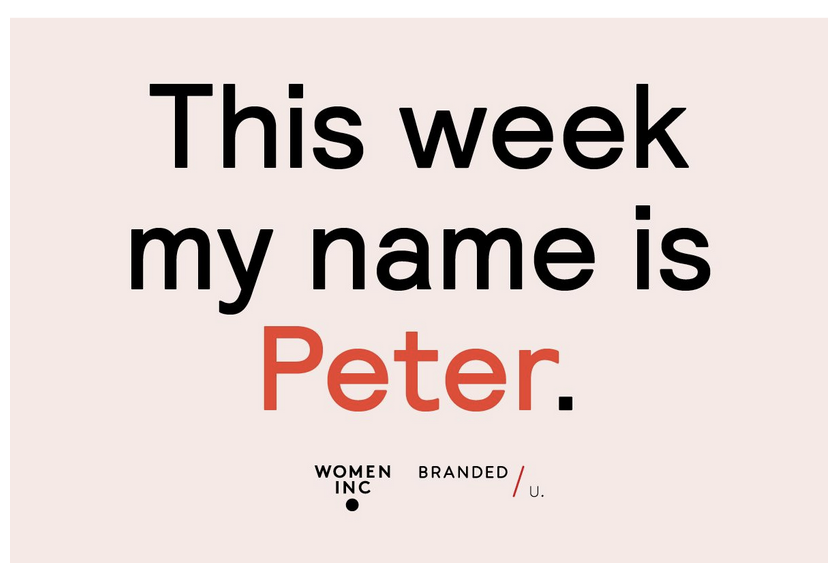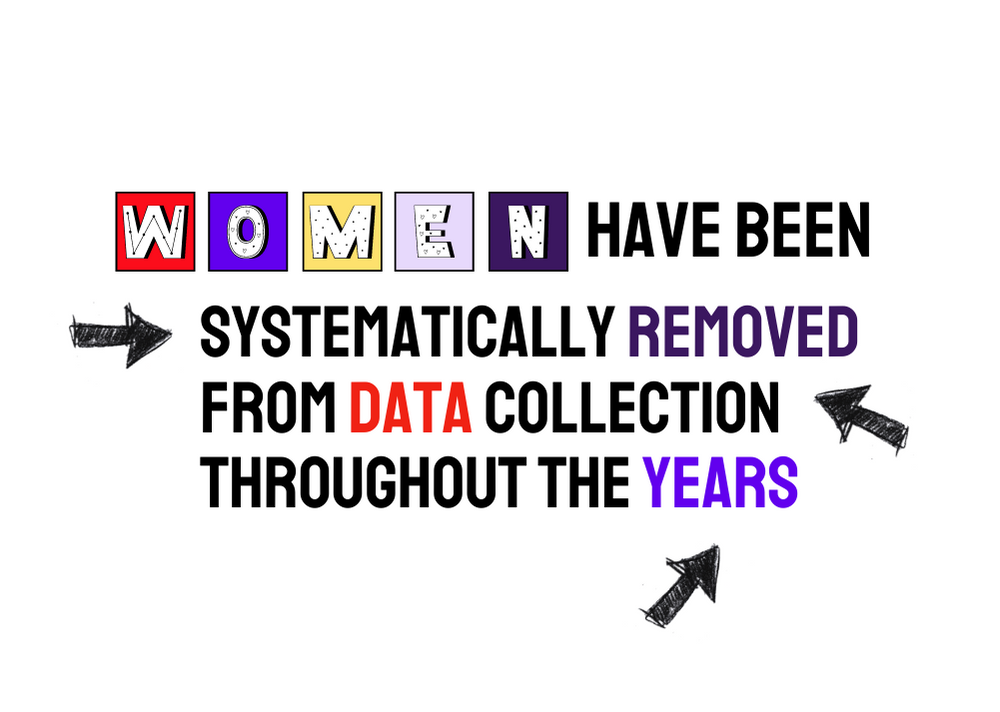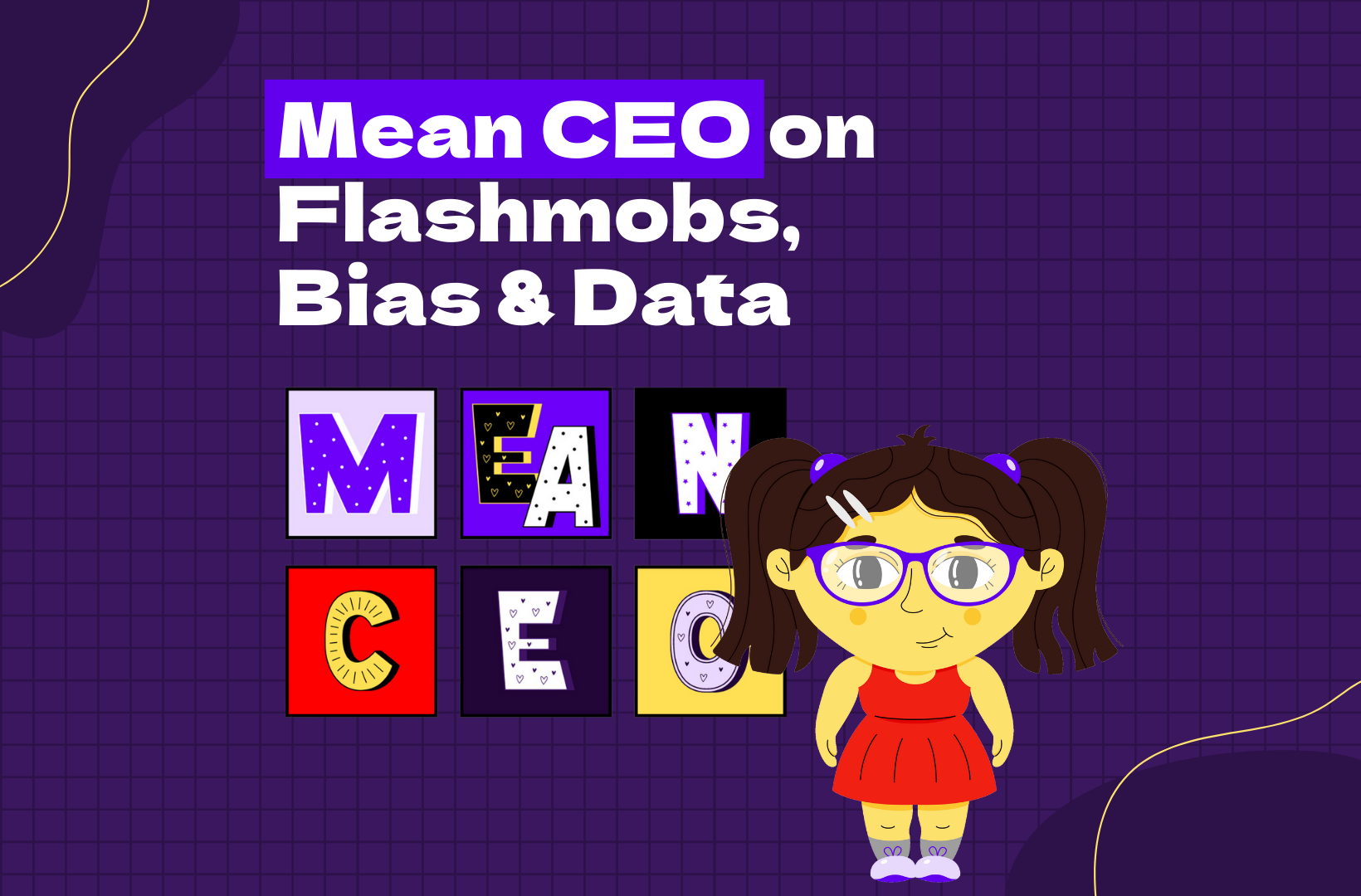Flashmobs, as an example, that are popular on social media, can do more damage than good. The recent one, in the Netherlands, that is trying to attract attention to the fact that there are a lot more male CEOs than female ones does it in a bad way, as the campaign is not backed by data.
This gives a bad reputation to these campaigns and usually never has a lasting effect. To raise awareness to empower women in business or attract new ones, we started our own flashmob on top of "My name is Peter.” Though people were very responsive, it never went anywhere beyond the awareness stage.

Additionally, we wanted to see how many of those who changed their name to Peter were actually ready to act and make a difference. As proactive entrepreneurs, we contacted about 70 people who decided to change their name to Peter that week, and less than 5% of them agreed to do what we asked: share our post about a FREE Pilot inviting women to try out entrepreneurship.
For the other 95%, going beyond changing their name on LinkedIn to combat the problem seemed too much of a hassle. Fair enough, if your goal is to show others that you care without putting in much effort.
My point is that the intentions of the people involved in such campaigns mostly grow roots out of their validation-starved egos. I must say though, the juxtaposition of fake (and real) Peters being hell-bent on creating endless white web sheets to ride the wave of the trend and their utter inaction looks hilariously absurd and shows how little people care about the issue.
Why is it important for us to emphasize this? In addition to making a real effort to bridge the gender gap and give women more opportunities and confidence, we oppose such campaigns because of their negative impact on people's perception of gender inequality. So while some are busy creating campaigns that undermine our credibility in the public eye, we sat down to ask ourselves the following questions.
How do we get engagement and most importantly, retention? How do we actually create a deep impact that has a butterfly effect?
We started digging into this during the pandemic when we decided to create a data-driven simulator game for future female entrepreneurs. Soon enough, we discovered that there’s really no data. Not about female entrepreneurs in general, and nothing about entrepreneurship in Europe.
Women have been systematically removed from data collection throughout the years. And now we are in a situation where nobody knows how to make the IT sector more diverse as nobody took the motivations of women into account.

So, here we are, a team of educators, linguists, journalists, creators, and developers, who want to create a way to educate women to become successful and have them produce data that can become the largest dataset of female-generated entrepreneurial textual information.
Seeing as these women are the data creators, they should also be the data owners, which is what we take into account as well. Based on this dataset, we will create an algorithm that will be able to grade any text and spit out a Bias Score, or BS as we call it. If your text has sexist biases, our algorithm will highlight them to you and offer options of fixing that.

There are plenty of ways to monetize that, which means that the women who contributed to the creation of this algorithm, will be able to benefit from its success, while not putting in any extra effort. Instead of being on Facebook or Instagram, they educate themselves and help create something that future generations of women will take for granted: AI that is not gender-biased.
Imagine that, huh? Join our startup game to unlock your hidden traits and explore your startup potential!
Follow Violetta on Twitter and LinkedIn!


